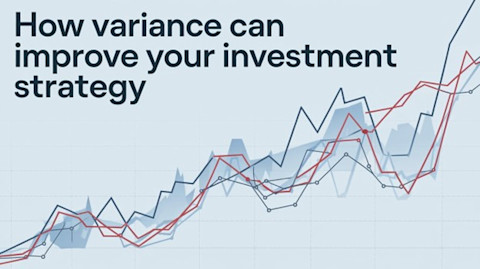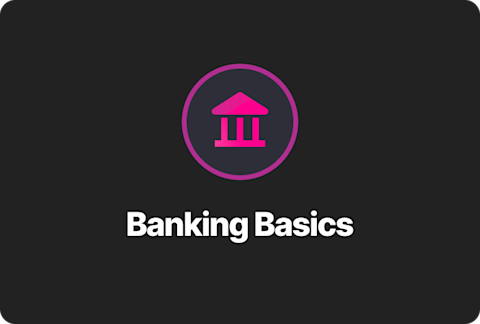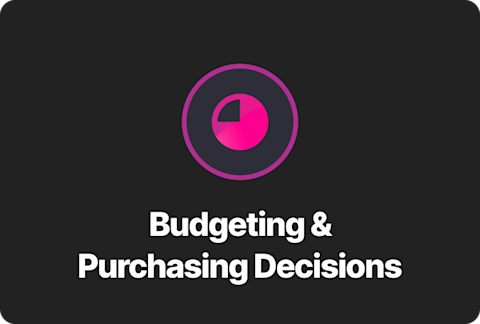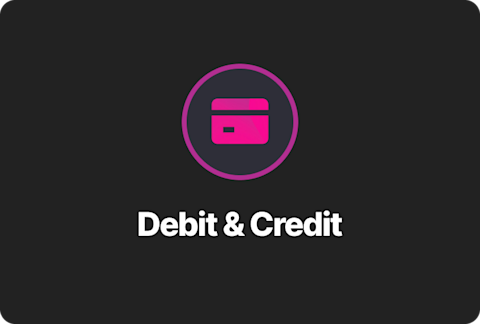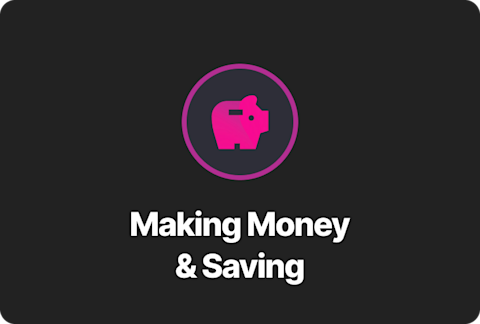Why Sooner is Better When it Comes to Investing

Why Sooner is Better When it Comes to Investing—Especially for Teens
As a parent, you want your child to have the best possible head start in life. Teaching your teen about investing may not be at the top of your to-do list. After all, you still need to help them nail that whole parallel parking thing (good luck with that!). However, there are some good reasons why you should move teaching them how to invest higher up your to-do list.
Keep reading to learn about why sooner is better when it comes to starting to invest money.
Time Is On Their Side
You know that saying the early bird gets the worm? When it comes to investing, it’s more like the early bird maximizes the power of compound interest.
Compound interest is the interest you earn on interest. When your teen invests, they can earn either capital gains or dividends—both of which they can choose to reinvest. That money has the potential to earn them more money, which they can again choose to reinvest. From there, the magic happens.
For example, let’s say your teen uses their summer job earnings to invest $100 in the S&P 500 and they earn a 10% annual return on that investment. Now they have $110. After another year and assuming another 10% gain, it would be worth $121. And by the fifth year, they could potentially have $160 without having to invest any new earnings outside of their investments. It can be hard for young adults to continually set aside money to invest.
While you can start investing at any age, the younger your teen starts, the more they stand to benefit from the power of compound interest, assuming that the market has favorable returns and those returns or dividends are reinvested. While the average annual market return is around 10% over long periods of time, past performance does not guarantee future results.
They Can Develop Healthy Habits
Investing can be a great springboard for talking to your teen about the basics of money management. While they don’t need a lot of money to start investing, it’s important to make sure they understand how to earn and save first.
You can work together to create a budget that includes room for investing. This can help them learn how to balance their needs and savings with other (likely more fun) spending opportunities.
If your teen earns or receives money consistently, you can encourage them to invest a portion of their savings. Over time, they’ll learn that small habits can add up to big results. If they aren’t consistently earning a paycheck or allowance, this is also a great time to talk about ways that they can earn a little extra. Consider creating a chore chart and setting up an allowance with Step!
Establishing these good money habits when they’re young can help your teen make better financial choices for the rest of their lives. Understanding what their money can do for them can make it easier to say no to unnecessary spending temptations.
They Can Learn Important Life Lessons Early
Before your chick leaves the nest, you want to make sure they are prepared for whatever life throws at them. The neat thing about investing is that it can be a metaphor for other aspects of our lives and teach important life lessons.
Risk vs Reward
Risk vs reward is a concept that applies to many aspects of life, not just financial ones. The choices we make regarding higher education, our careers and our relationships can all involve risk, but those risks can also lead to rewards. Knowing how to weigh those risks with potential rewards is key.
It’s important your teen understands that all investments carry some degree of risk. While stocks historically have healthy returns over the long run, the market always has ups and downs. Exposing your teen to those highs and lows (within reason) can be a very valuable learning experience that teaches them how to regulate their emotions and make sound decisions.
With Step, your teen can learn critical lessons about risk and reward for as little as $1, without sacrificing all of their savings or spending money.
Life Isn’t Linear
Like life, investing is full of ups and downs. There is no way to predict with 100% accuracy how an investment will perform and what will happen in the market as a whole. A stock could perform strongly for decades and could suddenly drop for any number of reasons.
It’s common for new investors to get the urge to bail on an investment during these lows. If this happens to your teen, it can be a great opportunity to educate them on the pros and cons of sticking with it, exercise patience, and keep the end goal in mind. The ability to stick with challenges, within reason, can help them in many other aspects of their lives, whether it’s learning a new sport or moving to a new school.
Plus, if your teen starts investing while they have many years ahead of them, they have time for their investments to potentially recover from market fluctuations.
They Have Your Support
Last but certainly not least, it’s beneficial for teens to start investing early in life while they are under your roof. You don’t have to be an expert to help them research what their investment options are and connect them with helpful resources and tools to get started, like Step.
Your teen can start learning how to invest before they turn 18 with Step if you open an investing account for them. Step does not charge any stock commission fees and there are no account minimums. Plus, you can monitor their investing activity from your own app, alongside their saving and spending.
Investing can be intimidating, but with your support, your teen can gain the confidence they need to start establishing a solid financial future.
The information presented herein is for educational purposes only and does not constitute investment advice or an offer to buy or sell any security, investment or other product. See our additional stock and crypto risk disclosures.
